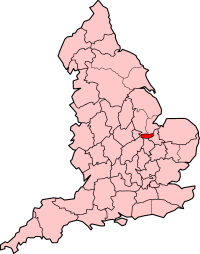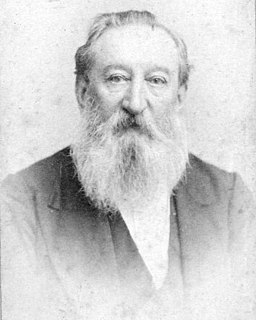
Sir George Gilbert Scott, styled Sir Gilbert Scott, was a prolific English Gothic revival architect, chiefly associated with the design, building and renovation of churches and cathedrals, although he started his career as a leading designer of workhouses. Over 800 buildings were designed or altered by him.
This article presents lists of the literary events and publications in 1868.

The Central Criminal Court of England and Wales is a court in London and one of a number of buildings housing the Crown Court. Part of the present building stands on the site of the medieval Newgate gaol, on a road named Old Bailey that follows the line of the City of London's fortified wall, which runs from Ludgate Hill to the junction of Newgate Street and Holborn Viaduct. The Old Bailey has been housed in several structures near this location since the sixteenth century, and its present building dates from 1902.
The Courts of England and Wales, supported administratively by Her Majesty's Courts and Tribunals Service, are the civil and criminal courts responsible for the administration of justice in England and Wales.

The Soke of Peterborough is an historic area of England associated with the City and Diocese of Peterborough, but considered part of Northamptonshire. The Soke was also described as the Liberty of Peterborough, or Nassaburgh hundred, and comprised, besides Peterborough, about thirty parishes.

The Obscene Publications Act 1959 is an Act of Parliament of the United Kingdom Parliament that significantly reformed the law related to obscenity in England and Wales. Prior to the passage of the Act, the law on publishing obscene materials was governed by the common law case of R v Hicklin, which had no exceptions for artistic merit or the public good. During the 1950s, the Society of Authors formed a committee to recommend reform of the existing law, submitting a draft bill to the Home Office in February 1955. After several failed attempts to push a bill through Parliament, a committee finally succeeded in creating a viable bill, which was introduced to Parliament by Roy Jenkins and given the Royal Assent on 29 July 1959, coming into force on 29 August 1959 as the Obscene Publications Act 1959. With the committee consisting of both censors and reformers, the actual reform of the law was limited, with several extensions to police powers included in the final version.

Warwickshire Police is the territorial police force responsible for policing Warwickshire in England. It was known as Warwickshire Constabulary until 2001. It is the second smallest territorial police force in England and Wales after the City of London Police, with only 823 regular officers as of September 2017. The resident population of the force area is 554,002.
Local justice areas are units in England and Wales established by the Courts Act 2003, replacing and directly based on the previous petty sessional divisions. They have been in existence since 2005.
West Surrey was a parliamentary constituency in the county of Surrey, which returned two Members of Parliament (MPs) to the House of Commons of the Parliament of the United Kingdom, elected by the bloc vote system.

William Guyton the younger JP (1816–84) was the second Mayor of Wellington, New Zealand in 1843. A position he obtained on the death of George Hunter and held until the Borough was abolished by the British Government.
John Jones, and his brothers William Highfield Jones and Joseph Jones, were successful industrialists, benefactors and politicians. They all became aldermen and served as Mayor of Wolverhampton.
Solicitor Joseph Crowther Smith served as Mayor of Wolverhampton 1865/66
John Lloyd Gibbons was an engineering surveyor, justice of the peace, county councillor for Bilston and a Liberal Unionist Party Member of Parliament for Wolverhampton South from 1898 to 1900.

Offlow is a hundred in the county of Staffordshire, England, located in the south-east of that county. It is named after a tumulus or mound in the parish of Swinfen and Packington, 2½ miles south of Lichfield. The hundred is recorded in the Domesday Book under the name "Offelav".











